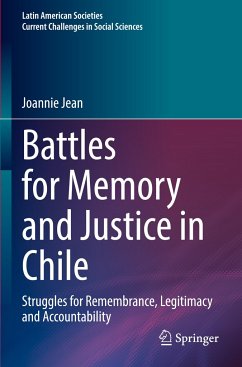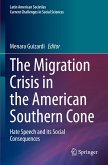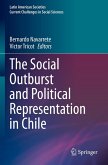This book analyzes how the past and its representation in the public space have been a source of conflict in Chile since the end of the Pinochet regime. From a multi-disciplinary perspective (sociology, anthropology and history), it studies the work of seven organizations of memory and human rights in Santiago, Chile, the struggles in which they are engaged, and the main debates that have arisen in the country around the themes of impunity, truth and memory.
Covering the period from 1998 to 2018, this book begins its analysis with the detention of Augusto Pinochet in London and concludes with the end of the second term of Michelle Bachelet. The seven organizations studied range from family groups and survivors to sites of memory and consciousness. Through analyses of the discourses produced by these organizations, it examines particular historical periods(1998-2000, 2001-2008, 2009-2010, 2011-2013 and 2014-2018) by focusing on strong debates and events of these conjunctures inorder to highlight the struggles of meaning and the conflicts of legitimacy relating to these times. In concrete terms, particular attention is paid to the analysis of the main themes of litigation, the way in which the actors are mobilized, their objectives and how the past is evoked in the public space.
Battles for Memory and Justice in Chile: Struggles for Remembrance, Legitimacy and Accountability will be of interest to researchers from different disciplines and fields of study within the human and social sciences, such as sociologists, historians and anthropologists working in fields such as Latin American studies, sociology of memory, sociology of social movements and human rights studies.
Covering the period from 1998 to 2018, this book begins its analysis with the detention of Augusto Pinochet in London and concludes with the end of the second term of Michelle Bachelet. The seven organizations studied range from family groups and survivors to sites of memory and consciousness. Through analyses of the discourses produced by these organizations, it examines particular historical periods(1998-2000, 2001-2008, 2009-2010, 2011-2013 and 2014-2018) by focusing on strong debates and events of these conjunctures inorder to highlight the struggles of meaning and the conflicts of legitimacy relating to these times. In concrete terms, particular attention is paid to the analysis of the main themes of litigation, the way in which the actors are mobilized, their objectives and how the past is evoked in the public space.
Battles for Memory and Justice in Chile: Struggles for Remembrance, Legitimacy and Accountability will be of interest to researchers from different disciplines and fields of study within the human and social sciences, such as sociologists, historians and anthropologists working in fields such as Latin American studies, sociology of memory, sociology of social movements and human rights studies.








